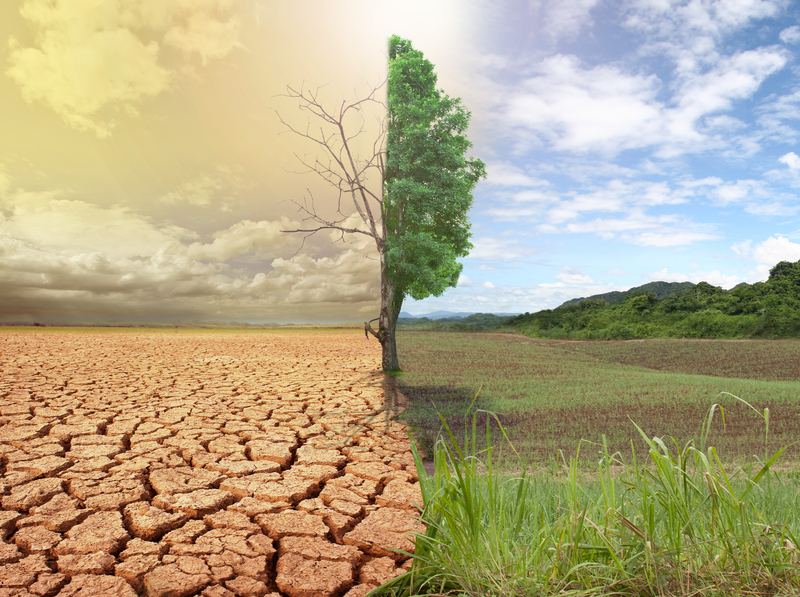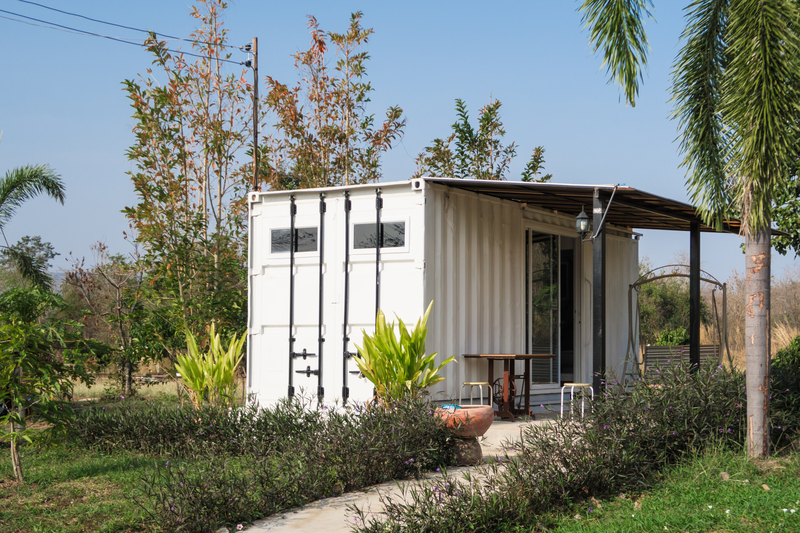Reducing Plastic Waste: A Sustainable Approach
In today's fast-paced world, the rising levels of plastic waste have become a major environmental concern. From our oceans to our landfills, plastic pollution is causing irreversible damage to ecosystems, wildlife, and even human health. This underscores the urgent need for effective solutions to tackle plastic waste through sustainable practices. In this comprehensive guide, we'll explore various approaches to reducing plastic waste, delve into the challenges, and highlight actionable steps individuals, communities, and businesses can take for a cleaner, greener future.
Understanding the Scale of Plastic Waste
Plastic, lauded for its durability and versatility, has permeated virtually every aspect of modern life. However, this very resilience makes its disposal problematic. According to recent studies:
- Over 300 million tons of plastic are produced globally each year.
- About half of all plastic produced is single-use--designed to be used once and thrown away.
- Only 9% of plastic waste is recycled annually; the rest ends up in landfills, incinerators, or the natural environment.
The persistence of plastics in the environment--some types taking up to 1,000 years to degrade--causes harm to marine life, wildlife, and even enters the food chain as microplastics. *Reducing plastic consumption* is no longer a choice but a necessity for the health of our planet.

Why Is Reducing Plastic Waste Important?
Mitigating plastic pollution offers profound environmental and societal benefits. Here is why adopting a sustainable approach to plastic reduction is imperative:
- Protects marine ecosystem: Over 8 million tons of plastics end up in the oceans every year, posing threats to fish, seabirds, turtles, and coral reefs.
- Reduces greenhouse gas emissions: Plastic production and disposal release significant amounts of carbon dioxide and other greenhouse gases.
- Safeguards human health: Microplastics have been detected in drinking water, food, and even the air we breathe, raising concerns about toxic exposure.
- Conserves resources: Plastics are made from petroleum, a non-renewable resource. Less plastic means reduced reliance on fossil fuels.
By focusing on ways to prevent plastic waste, communities can contribute to a cleaner environment and a sustainable economy.
Challenges in Tackling Plastic Waste
Reducing plastic usage is a complex challenge that requires a multi-pronged approach. Some of the main obstacles include:
- Convenience: Plastic packaging is ubiquitous because of its convenience, light weight, low cost, and wide availability.
- Poor recycling infrastructure: Many regions lack efficient collection and sorting systems, leading to low recycling rates.
- Consumer behavior: Lack of awareness and engrained habits make it challenging for individuals to change their consumption patterns.
- Economic factors: Virgin plastics are often cheaper than recycled alternatives, discouraging investments in the recycling sector.
Despite these challenges, coordinated action from governments, businesses, and individuals can make measurable progress in plastic waste reduction.
Effective Strategies for Reducing Plastic Waste
There are multiple strategies and best practices for reducing plastic footprints at various levels. Here, we'll outline how individuals, communities, and businesses can adopt sustainable measures.
1. Embracing the Three Rs: Reduce, Reuse, Recycle
- Reduce: The first and most impactful step is to cut down on single-use plastics. Choose products with minimal or alternative packaging and avoid items such as plastic straws, cutlery, and bags.
- Reuse: Opt for reusable alternatives like cloth bags, stainless steel water bottles, glass containers, and beeswax wraps for food storage.
- Recycle: Learn about local recycling guidelines and properly sort plastic waste to maximize recycling rates.
2. Switching to Sustainable Alternatives
- Bioplastics and Compostables: Innovations in plant-based plastics and compostable materials offer eco-friendly alternatives to traditional plastics.
- Paper and Glass: Whenever possible, choose products packaged in paper, glass, or metal, which are easier to recycle and less harmful to the environment.
*Reduction of plastic packaging* in supermarkets and online deliveries is fast becoming a priority for environmentally conscious shoppers.
3. Supporting Circular Economy Initiatives
A key to a sustainable strategy for plastic waste is transitioning toward a circular economy where materials are kept in use for as long as possible. This means:
- Choosing products with recycled content, encouraging manufacturers to incorporate post-consumer plastics into their supply chain.
- Participating in take-back programs where companies collect and recycle used packaging or products.
- Promoting upcycling, turning used plastics into useful new products, such as building materials or textiles.
4. Community-Led Initiatives
- Community clean-ups: Organize or join local efforts to remove plastic waste from parks, beaches, and waterways. Such actions raise awareness and prevent plastics from reaching oceans.
- Plastic-free campaigns: Advocate for plastic bans in public places, organize education programs, and support local businesses moving towards sustainable practices.
5. Changing Consumer Habits
*Reducing your plastic footprint* begins with personal commitment:
- Carry your own shopping bags and water bottles.
- Buy in bulk to minimize packaging.
- Avoid products with excessive plastic wrap or microplastics (such as some cosmetics and cleaning products).
- Choose refillable or concentrated products.
The Role of Policy and Regulation in Reducing Plastic Waste
Government action is essential for systematic reduction of plastic waste. Policies that have proven effective globally include:
- Plastic bag bans: Over 60 countries have introduced bans or taxes on plastic bags, leading to significant reductions in plastic pollution.
- Mandatory recycling targets: Laws that set clear targets for recycling rates and require producers to manage waste more responsibly.
- Extended Producer Responsibility (EPR): Regulations requiring manufacturers to take responsibility for the collection, recycling, or disposal of their products and packaging.
- Microbead prohibition: Bans on plastic microbeads in personal care products protect waterways from microplastic contamination.
Through *progressive environmental policy*, governments can incentivize innovation, strengthen recycling systems, and shift the economy toward sustainable materials.
Innovative Solutions to Plastic Pollution
Science and technology are offering groundbreaking ways of minimizing plastic waste and managing existing pollution more sustainably. Noteworthy examples include:
- Biodegradable plastics: Plastics made from renewable sources that break down completely in natural environments.
- Plastic-eating enzymes: Engineered microbes and enzymes that can break down complex plastics in a matter of weeks.
- Plastic-to-fuel technologies: Processes that convert waste plastics into usable fuels, reducing landfill waste and creating energy.
- Ocean clean-up initiatives: Large-scale projects, such as floating barriers and cleanup vessels, are removing plastics from the ocean and preventing further pollution.
These innovations, combined with sustainable waste management, hold promise for a future with far less plastic debris.
The Business Case for Reducing Plastic Waste
Businesses that take proactive steps towards reducing plastic pollution gain a competitive edge in the increasingly eco-conscious market. Key benefits include:
- Enhanced brand reputation: Consumers are increasingly favoring brands that demonstrate environmental responsibility.
- Cost savings: Reducing packaging and exploring reusable or refillable options cuts material costs over time.
- Regulatory compliance: Staying ahead of legislation prevents costly fines and disruptions to business operations.
- Innovation and differentiation: Companies that pioneer sustainable packaging solutions stand out and drive industry-wide change.
An eco-conscious approach to managing plastics not only benefits the environment but also drives business resilience and profitability.
How Individuals Can Contribute to Reducing Plastic Waste
It's easy to feel overwhelmed by the magnitude of plastic pollution, but every action counts. Here's how you can make a daily difference with a sustainable approach to plastic waste reduction:
- Practice mindful consumption: Think before you buy. Do you really need it? Can you buy unpackaged, reusable, or second-hand items?
- Support brands with sustainable packaging: Look for certifications and transparency in environmental commitments.
- Advocate for change: Use your voice to encourage local businesses, schools, and governments to adopt plastic reduction measures.
- Educate and inspire: Share what you learn about plastic pollution and solutions with friends, family, and online communities.
By adopting small, consistent changes, individuals help shift societal norms towards sustainability.

The Future: Towards A Plastic-Waste-Free World
Completely eliminating plastic may not be practical, but reducing unnecessary use and managing plastic waste responsibility is within reach. The future hinges on:
- Continuous innovation in materials and recycling technologies.
- Stricter regulations and global cooperation.
- Greater emphasis on education and awareness.
- Joint action from individuals, governments, and industry.
With unified commitment, it is possible to halt the flow of plastics polluting our planet and move towards a system where all plastic stays in the economy--and out of the environment.
Conclusion: Embracing Sustainable Practices to Reduce Plastic Waste
*Reducing plastic waste* is an urgent priority for the survival and well-being of people and the planet. By practicing the three Rs, supporting sustainable alternatives, advocating for effective policy, and fostering innovation, everyone can contribute to a solution. A sustainable approach to plastic usage demands cooperation at every level--from personal choices to global strategies.
Let's build a future where plastic is managed responsibly, habitats are protected, and communities thrive. The journey to plastic-waste reduction starts with informed choices and collective action. Together, we can turn the tide on plastic pollution--one sustainable step at a time.